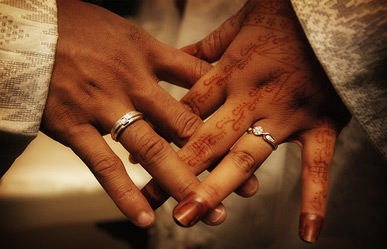Apr 24: Dubai's Supreme Committee of Crisis and Disaster Management has announced partial easing of restrictions on public movement in the emirate starting from Friday amid the COVID-19 outbreak.
The announcement is in line with the decisions of the Ministry of Health and Prevention and the National Emergency Crisis and Disaster Management Authority (NCEMA), a statement released late on Thursday said.
The move, which coincides with the start of the fasting month of Ramzan, will allow increased freedom of movement while ensuring the continuation of strict precautionary and preventive measures, the statement said.
The Committee has also outlined a new set of guidelines on movement and a list of exempted commercial activities and vital sectors, it added.
The decision to reduce restrictions on movement in Dubai follows a careful assessment of the current situation and analysis of reports from various authorities working to combat the pandemic, the committee said.
Underlining the emirate’s success in countering the spread of the virus, it said that stringent measures undertaken over the last three weeks have significantly helped to mitigate the crisis.
It further stressed that despite the partial easing of restrictions on movement, people will not be allowed to hold public or private gatherings and those who breach the guidelines will face legal action.
The need to ensure the safety and wellbeing of the community cannot be underestimated, the Committee stressed.
"Despite the difficult circumstances the world is facing today, the UAE has set an example for dealing with the crisis. This was also made possible through the commitment of all individuals and institutions both in the private and public sector,” the committee said in the statement.
“All measures undertaken by the country have been driven by the objective of safeguarding everyone’s safety and wellbeing,” it added.
Public transport (bus and metro), restaurants and cafes (except for buffet and shisha), retail sector (malls, high-street outlets and souqs), wholesale sector and maintenance shops will be allowed to operate under certain conditions, it said.
Shopping malls, markets and commercial outlets will be open daily from 12 pm to 10 pm. Restaurants and shops are allowed to operate at a maximum of 30 per cent capacity at shopping malls, it said.
Malls and retail outlets are not allowed to hold entertainment events to avoid congestion and crowding, it added.
Restaurants and cafés too have been allowed to operate but are not permitted to serve shisha and buffet. Dine-in customers are allowed but should occupy only a maximum of 30 per cent of the outlet’s capacity and only single-use cutlery can be used at restaurants and cafes, it said.
However, family entertainment facilities, cinemas, changing rooms and prayer rooms will not be allowed to operate. Hotels will be allowed to operate without opening pools, gyms, sauna and massage parlours.
A maximum of 30 per cent of the workforce of all organisations will be allowed to work from their offices while the rest will be required to work from home.
As part of the first phase of easing of restrictions, the stringent curbs on public movement will now be limited to the period between 10 pm to 6 am. During this period, the public will be allowed to leave their homes only for medical emergencies.
Individuals will be able to leave their homes between 6 am and 10 pm without a permit.
The public will be required to strictly follow precautionary measures which include maintaining physical distance from others as per guidelines and wearing a face mask. Those who do not wear a mask will be subject to a fine of AED 1,000.
Members of the public have also been allowed to exercise outside their homes provided they do not leave their area of residence. They can undertake activities such as walking, running or cycling for 1-2 hours each time. Only a maximum of three people can exercise at the same time.
Permission has also been granted to allow visit first and second degree relatives as long as gatherings are restricted to not more than five people. However, visiting high-risk individuals (individuals above 60 years and those with underlying medical conditions) should be avoided.
 Jeddah, Mar 19: Marriage loans will be increased to SR60,000 under a new scheme approved by the Saudi Credit and Savings Bank.
Jeddah, Mar 19: Marriage loans will be increased to SR60,000 under a new scheme approved by the Saudi Credit and Savings Bank.




Comments
Amazing! Its genuinely awesome post, I have got much clear idea about from this article.
Here is my webpage :: self build real estate; architectural-services-hampshire.co.uk: http://architectural-services-hampshire.co.uk/architectural-calculation…,
Add new comment